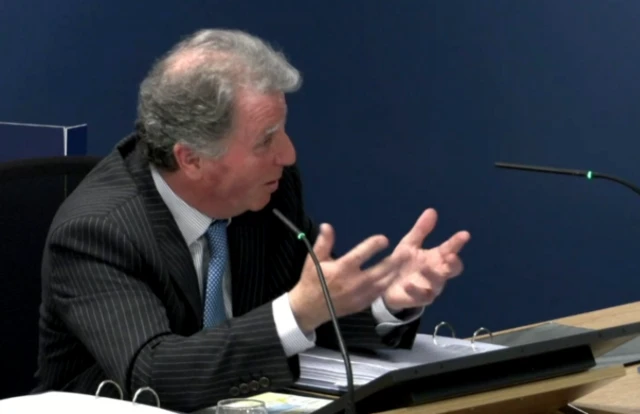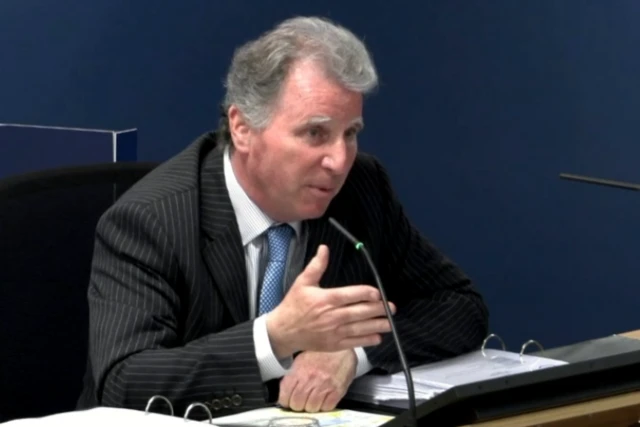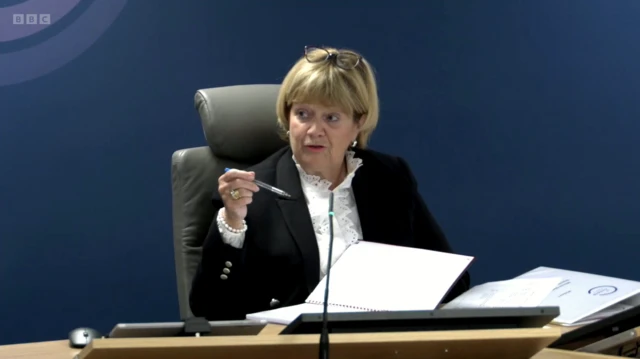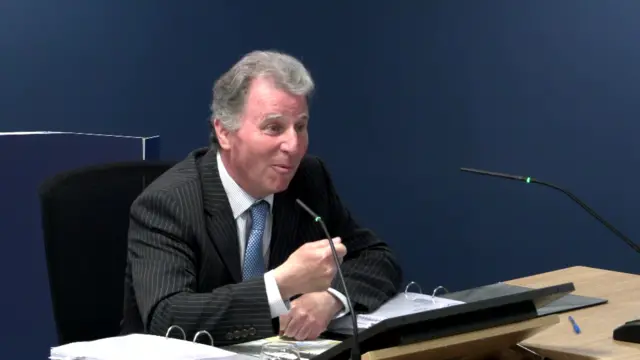Letwin says he didn't have much to do with Walespublished at 11:22 British Summer Time 20 June 2023
As Letwin spoke about devolved nations, he mentioned Northern Ireland and Scotland.
Baroness Hallett asks, "did the same apply to Wales?"
Letwin says there was one occasion he had a relationship with Wales which was in relation to flooding.
"They were present at the relevant Cobra meetings by video, we had a perfectly working relationship.
"As it happens, in the other cases I was dealing with, Wales was not a particularly material issue."





